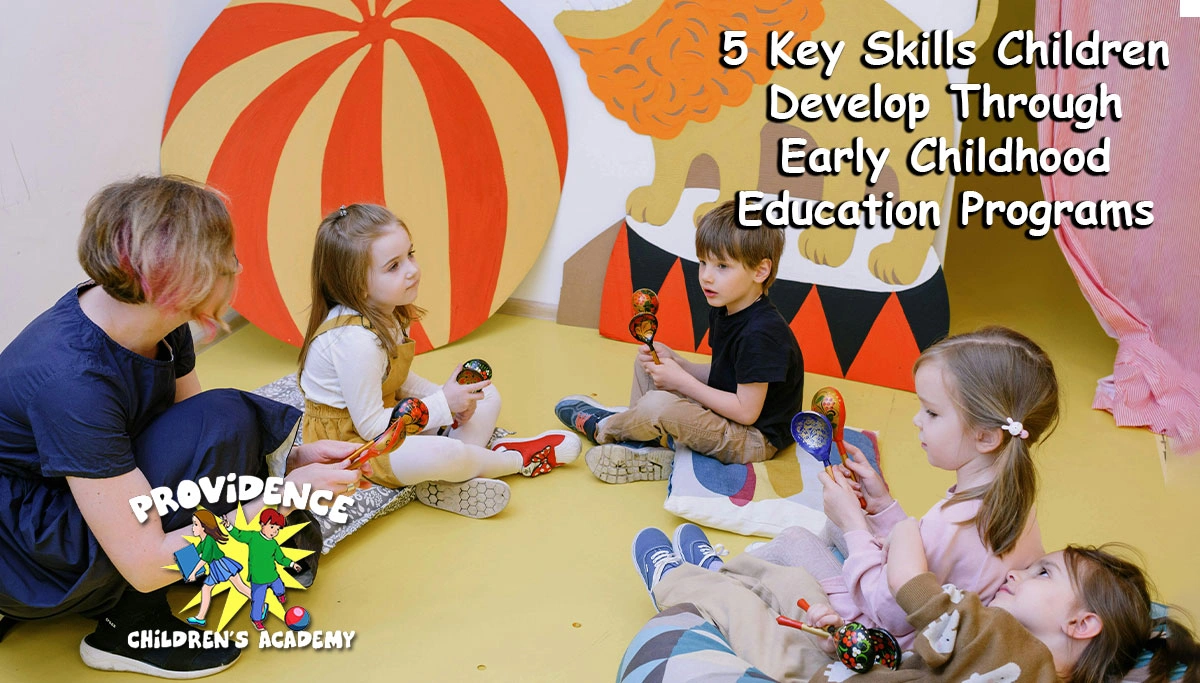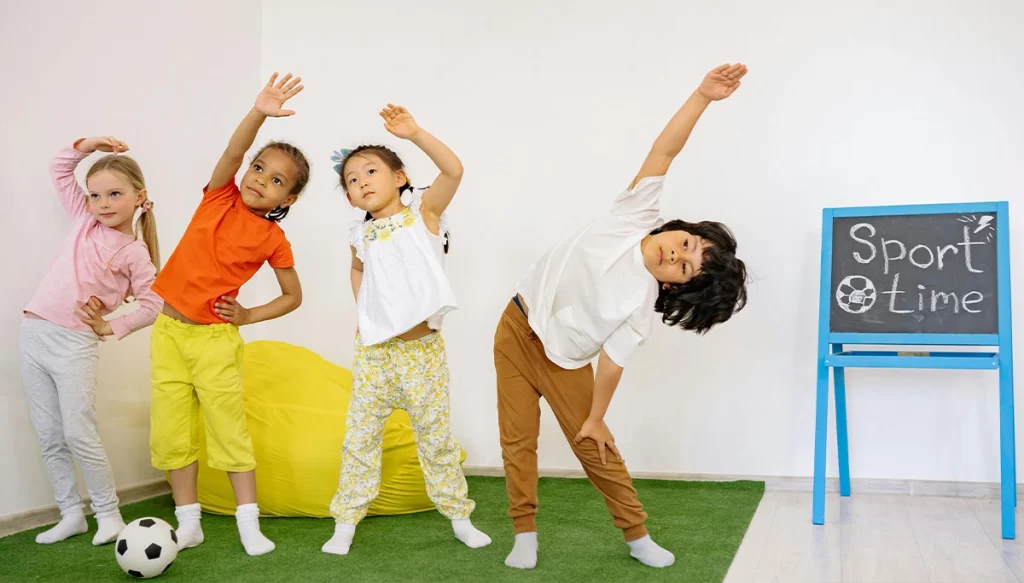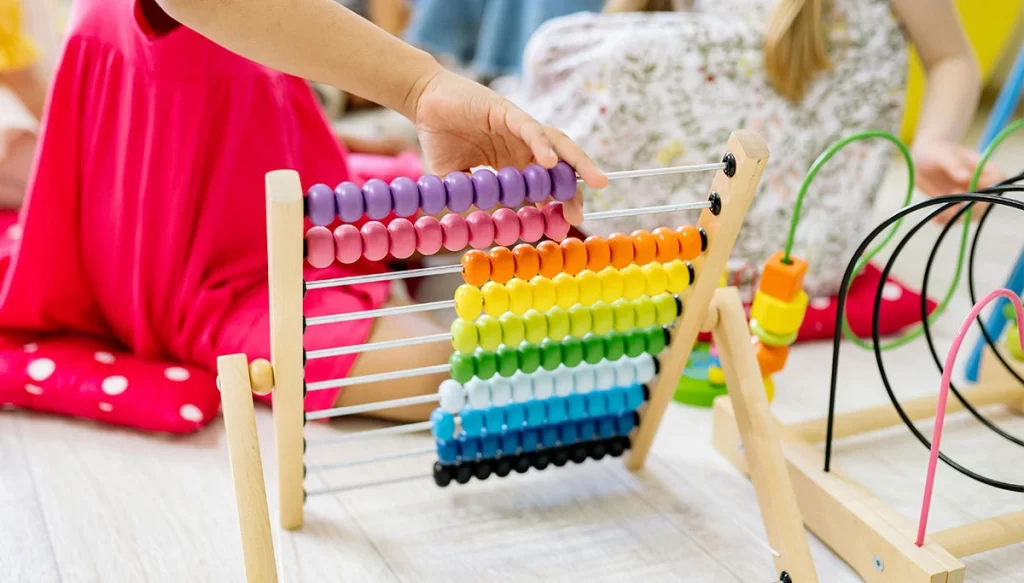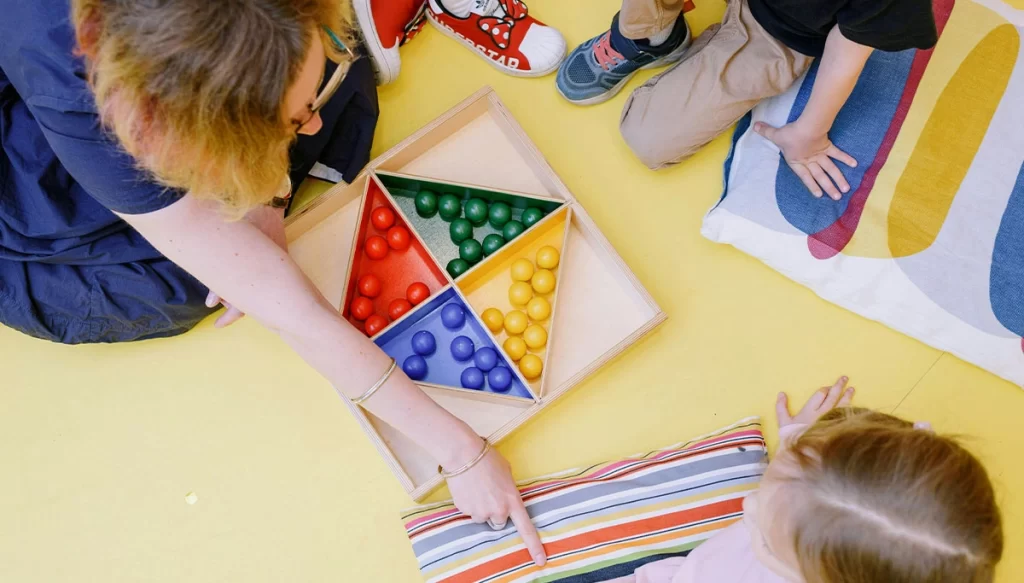
Early childhood is a crucial period of a child’s life, where foundations are laid for lifelong learning and development, The experiences and skills gained during these years will shape the child’s social, emotional, and cognitive growth and directly impact their future academic journey and social interactions.
Early childhood education programs are vital in molding a child’s physical, social, and emotional development. Investing in a good early education program will ensure a child develops the five essential skills that will set them on a lifelong path of growth and success.
Five Key Skills Developed In Early Childhood
Early childhood education lays a foundation for lifelong learning and development. A high-quality education program will focus on nurturing these five essential skills:
- Physical Skills
- Social skills
- Emotional skills
- Language and literacy skills
- Thinking and cognitive skills
1: Physical Skills

Early education programs focus on developing both fine (precise movements of hands and fingers) and gross (large muscle movement) motor skills. Essential for a child’s overall growth and cognitive development, physical skills enable a child to discover the world around them and develop confidence in their abilities through play.
Climbing, jumping, throwing /catching, and running in a controlled setting promote coordination, strength, and balance. Physical activities like those mentioned, are also essential for the development of bones and muscles, and for preventing childhood obesity.
Fine motor activities like drawing, cutting with scissors, and manipulating small objects, are vital for hand-eye coordination, and developing dexterity.

Children need social skills to build relationships and navigate social environments. Early education programs encourage children to develop skills involving appropriate social interaction, empathy, and effective communication.
Through play, and daily interaction with peers, teachers, and other adults, children learn vital social skills including:
- How to get along with peers and adults
- How to interact and make friends
- How to resolve disagreements appropriately
- How to recognize and manage their feelings
- How to recognize and manage other people’s feelings/have empathy for others
Social skills are vital for the development of emotional intelligence. Children who develop social skills early are more likely to form positive relationships and deal with social obstacles and challenges effectively.
3: Emotional Skills
Children need to learn how to identify, express, and manage their emotions effectively. Teachers in early education facilities are trained to help children understand what they are feeling, why they are feeling the emotion, and to respond appropriately.
Early education programs provide a nurturing environment where children are encouraged to take risks, make mistakes, and learn from them. They are also taught to cope with frustration or anxiety and problem-solve effectively.
Children with strong emotional skills develop a positive self-image which allows them to effectively navigate life’s challenges. Emotional skills are essential for mental well-being and personal growth.
4: Language And Literacy Skills
Storytime, singing, and group activities expose children to vocabulary and sentence structure. In early childhood education programs, effective communication and language skills are taught by encouraging children to ask questions, share ideas, and describe experiences.
Early childhood education programs also prepare children for literacy development by building phonemic awareness using rhyming words, storytelling, and letter recognition games. Letter recognition and fine motor skills are further strengthened with writing activities like tracing and drawing.
By developing language and literacy skills at an early age, children can express themselves clearly, comprehend complex ideas, and engage with the people around them. These skills are essential for effective communication and future academic success.
5: Thinking And Cognitive Skills

Cognitive development includes the child’s ability to think, reason, and solve problems. Puzzles, building blocks, and games that require a child to think logically and strategically, help to develop these essential skills.
Early childhood education programs include activities like memory games, repetitive songs, and storytelling that help children improve focus and memory retention. These programs also foster curiosity by introducing new concepts like science experiments, nature walks, and creative activities that stimulate a love for learning.
Cognitive skills are the cornerstone of lifelong learning. They empower children to understand situations, make informed decisions, and adapt to new and unknown situations.
Why Skills Learned In Early Learning Education Programs Are Vital

The skills a child learns in early childhood education programs will have an everlasting effect on a child’s future growth and overall success.
These skills assist with:
Future academic achievements – children are more prepared and have the tools they need to navigate formal schooling
Improved interpersonal relationships – Children can foster positive relationships using the social and emotional skills they have developed.
Problem-solving – cognitive and thinking skills empower children to tackle challenges with confidence.
Self-sufficiency – physical and emotional skills promote independence and enable children to confidently manage their own needs.
Life-long achievements – skills developed in early childhood education programs contribute to future academic, career, and social (relationship) success.
What Parents Need To Look For In Early Childhood Education Facilities
Choosing the right early childhood education facility is one of the most crucial decisions a parent will need to make. Here are some tips to help narrow the search:
- Staff at the facility must be licensed and qualified in early childhood education. They must also be focused on fostering a caring, nurturing, and stimulating environment.
- The curriculum must be well-rounded and play-based. It must be structured to incorporate the five key skills that need to be developed.
- The facility must adhere to strict safety protocols (including safe entry and exit points). The equipment must be hygienic and well-maintained, and the environment must be clean and child-friendly.
- Classrooms must be designed to be engaging and inviting. They must encourage exploration, creativity, and learning.
- Outdoor areas must be secure, and equipped with age-appropriate equipment and toys.
- Low student-teacher ratios allow for more individual attention and attention to each child’s unique needs.
- A good facility will ensure open communication with parents and invite their involvement in decision-making and activities.
Early Childhood Education In Coconut Creek
Providence Children’s Academy takes pride in providing the highest quality service to the children and parents in Coconut Creek. Our qualified, licensed, and specially trained staff are fully committed to offering a nurturing and caring environment where children can learn and grow.
To find out more about our early education programs, or to meet us in person and take a tour of our facility, call 954-570-6914 today.
